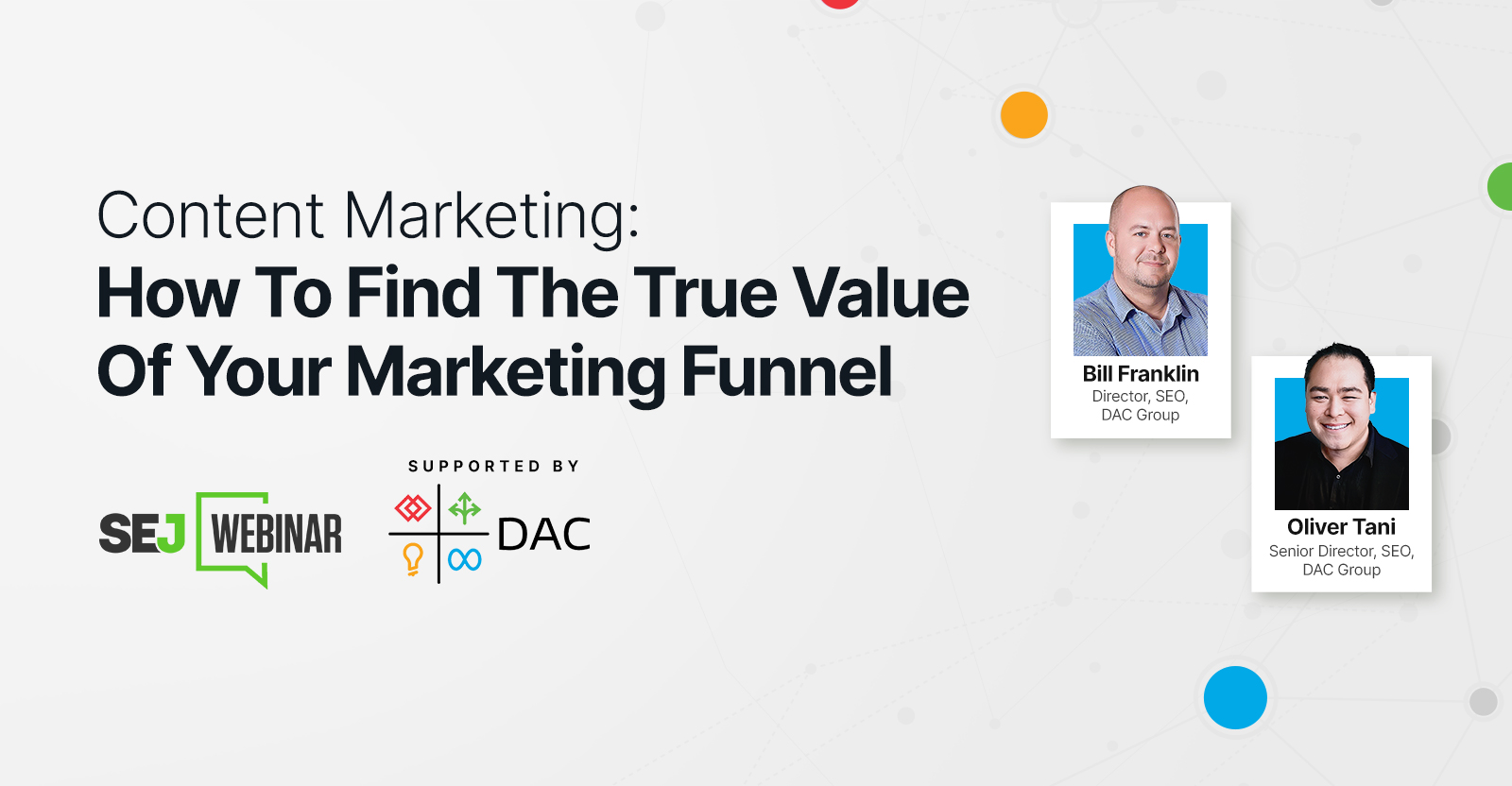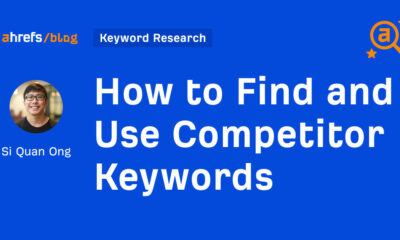SEO
Beginner’s Guide to Optimizing Websites for Better Rankings

You want to rank on the #1 spot in Google. I get it. Everyone wants that spot but how come you’ve never been able to get your keywords there consistently?
I wrote this guide for you to get some of your keywords there in 30 days or less.
Just like a car needs regular tune-ups to keep it running smoothly, your website needs periodic SEO maintenance to help it maintain a high ranking.
Here are some routine tasks that me and my team in SEO Hacker do for our client’s website upkeep.
Publish fresh or update old content regularly
One crucial element to maintaining your website rankings is your content. Without content, search engines can’t take into account that your website is authoritative and trustworthy.
With that said, do you consistently create original and satisfying content? Have you also backtracked some of your old content and looked to see if there are articles that needs updating?
With Google’s recent helpful content update, it’s important to consider how you create content.
Below are some guide questions to help you re-evaluate previously published content and how you create new content:
- Does your content demonstrate your expertise and depth of knowledge from using a product or service?
- Does your content primarily summarize what others have to say without adding much value of your own?
- What impression will your content leave on a reader? Will they learn something new or experience something satisfying?
- Do you create valuable content while keeping Google’s guidelines and core algorithm updates in mind?
- Does your content promise to answer a question without a clear, confirmed answer yet, or one that hasn’t been confirmed?
- Does your visual content follow Google’s image SEO best practices?
- Is your content and web design and interface mobile-friendly?
- Is your content likely to receive backlinks because of its resourcefulness and value?
These questions will help you plan and create substantial content for your website that’s aligned with your audience and Google’s recommendations.
Check your internal and external links periodically
Did you know that backlinks help to establish the expertise, authority, and trustworthiness (E-A-T) of your website? Links are an active and powerful ranking signal to this day.
When other websites cite your website or web page via links, it shows Google that you’re authoritative and trustworthy.
To maintain your website’s rankings, you will need to check your internal and external links periodically. Internal links or interlinks are hyperlinks that point from a page in your site to another page on your site.
Internal links help users navigate your site and find the content they are searching for.
What internal links do for SEO is that it helps search engines find and understand the value, relevance, and relationship between your web pages.
On the other hand, external links or outbound links are hyperlinks that point from your website to an article on a third-party website. Every time you link to another website altogether, it is an external link.
I’m guessing your next question here is, does creating outbound links matter in SEO?
Some SEO specialists agree it matters in SEO, while some don’t. In any case, how I decide is if it helps the reader know more about the topic or the content that I wrote, I will link out for sure. Every external link included in our content is meant to cite relevant and authoritative sources.
Consequently, these links let my readers learn more about the topic deeply. In addition, it also gives me the opportunity to build some expertise and authority to the content I wrote as well.
An experiment done by Reboot Online showed how external links can help improve your website’s ranking. Their study concludes that “outgoing relevant links to authoritative sites are considered in the algorithms and do have a positive impact on rankings.” To learn more about their updated study in-depth, you can read about it here.
What this study and my personal experience concludes is that linking to sites with good contextual authority has a positive impact on your content’s rankings when done correctly. It helps send trust signals to Google.
But why do you need to occasionally check your hyperlinks?
Remember, we create content for people. If someone clicks on a link and receives an error message, they are more likely to leave the site. Links that no longer work or are inaccessible are called broken links. While broken links do not directly affect your website’s rankings, inaccessible links directly affect user experience – which I could argue is a ranking factor.
Optimize your titles, meta descriptions, and alt text for images
You shouldn’t neglect the small details like titles and meta descriptions that contribute to your website’s organic traffic and ranking. Titles and meta descriptions play a major role in making your website visible in the search results.
These elements aren’t considered on-page ranking factors per se, but what they do is they help searchers see and understand what your website or your webpage is about straight from the search results page.

A lot of people click on titles and meta descriptions on search engine results pages (SERP) that contain relevant summaries. When searchers click on your website’s title and meta description related to their query, your click-through rate (CTR) increases.
On the other hand, adding alternative text (alt-text) to your images plays a role in making your websites rank because of its importance on Google Image Search. If an image doesn’t load or is inaccessible to a web browser, an alternative text provides a helpful description of the image to users.
In essence, adding alternative text to images is like hitting two birds with one stone: it helps searchers who may have images or scripts turned off in their web browser understand what your image is about. Similarly, it helps Google bots crawl and index your website better.
So, if you haven’t optimized your website’s titles, meta descriptions, or your images’ alt-texts yet, now’s the time to do so. If you don’t know how to optimize your meta description, here’s a helpful post where we share some useful tips on how to do it.
Key Takeaway
In SEO, nothing is sacred. This is why SEO is never a one-time fix. Rankings in search results aren’t permanent. Search engines like Google constantly update their algorithms. Plus the fact that your competitors can catch up and get ahead if they employ better SEO strategies. Whatever tactic or strategy you have in place now for your website to rank may not work tomorrow.
This is why SEO maintenance is important. By regularly performing these and other web maintenance tasks, you can help your website earn high rankings in search results and keep it there.
Did you find this article helpful? Let me know in the comments below.
SEO
Measuring Content Impact Across The Customer Journey

Understanding the impact of your content at every touchpoint of the customer journey is essential – but that’s easier said than done. From attracting potential leads to nurturing them into loyal customers, there are many touchpoints to look into.
So how do you identify and take advantage of these opportunities for growth?
Watch this on-demand webinar and learn a comprehensive approach for measuring the value of your content initiatives, so you can optimize resource allocation for maximum impact.
You’ll learn:
- Fresh methods for measuring your content’s impact.
- Fascinating insights using first-touch attribution, and how it differs from the usual last-touch perspective.
- Ways to persuade decision-makers to invest in more content by showcasing its value convincingly.
With Bill Franklin and Oliver Tani of DAC Group, we unravel the nuances of attribution modeling, emphasizing the significance of layering first-touch and last-touch attribution within your measurement strategy.
Check out these insights to help you craft compelling content tailored to each stage, using an approach rooted in first-hand experience to ensure your content resonates.
Whether you’re a seasoned marketer or new to content measurement, this webinar promises valuable insights and actionable tactics to elevate your SEO game and optimize your content initiatives for success.
View the slides below or check out the full webinar for all the details.
SEO
How to Find and Use Competitor Keywords

Competitor keywords are the keywords your rivals rank for in Google’s search results. They may rank organically or pay for Google Ads to rank in the paid results.
Knowing your competitors’ keywords is the easiest form of keyword research. If your competitors rank for or target particular keywords, it might be worth it for you to target them, too.
There is no way to see your competitors’ keywords without a tool like Ahrefs, which has a database of keywords and the sites that rank for them. As far as we know, Ahrefs has the biggest database of these keywords.
How to find all the keywords your competitor ranks for
- Go to Ahrefs’ Site Explorer
- Enter your competitor’s domain
- Go to the Organic keywords report
The report is sorted by traffic to show you the keywords sending your competitor the most visits. For example, Mailchimp gets most of its organic traffic from the keyword “mailchimp.”


Since you’re unlikely to rank for your competitor’s brand, you might want to exclude branded keywords from the report. You can do this by adding a Keyword > Doesn’t contain filter. In this example, we’ll filter out keywords containing “mailchimp” or any potential misspellings:


If you’re a new brand competing with one that’s established, you might also want to look for popular low-difficulty keywords. You can do this by setting the Volume filter to a minimum of 500 and the KD filter to a maximum of 10.


How to find keywords your competitor ranks for, but you don’t
- Go to Competitive Analysis
- Enter your domain in the This target doesn’t rank for section
- Enter your competitor’s domain in the But these competitors do section


Hit “Show keyword opportunities,” and you’ll see all the keywords your competitor ranks for, but you don’t.


You can also add a Volume and KD filter to find popular, low-difficulty keywords in this report.


How to find keywords multiple competitors rank for, but you don’t
- Go to Competitive Analysis
- Enter your domain in the This target doesn’t rank for section
- Enter the domains of multiple competitors in the But these competitors do section


You’ll see all the keywords that at least one of these competitors ranks for, but you don’t.


You can also narrow the list down to keywords that all competitors rank for. Click on the Competitors’ positions filter and choose All 3 competitors:


- Go to Ahrefs’ Site Explorer
- Enter your competitor’s domain
- Go to the Paid keywords report


This report shows you the keywords your competitors are targeting via Google Ads.
Since your competitor is paying for traffic from these keywords, it may indicate that they’re profitable for them—and could be for you, too.
You know what keywords your competitors are ranking for or bidding on. But what do you do with them? There are basically three options.
1. Create pages to target these keywords
You can only rank for keywords if you have content about them. So, the most straightforward thing you can do for competitors’ keywords you want to rank for is to create pages to target them.
However, before you do this, it’s worth clustering your competitor’s keywords by Parent Topic. This will group keywords that mean the same or similar things so you can target them all with one page.
Here’s how to do that:
- Export your competitor’s keywords, either from the Organic Keywords or Content Gap report
- Paste them into Keywords Explorer
- Click the “Clusters by Parent Topic” tab


For example, MailChimp ranks for keywords like “what is digital marketing” and “digital marketing definition.” These and many others get clustered under the Parent Topic of “digital marketing” because people searching for them are all looking for the same thing: a definition of digital marketing. You only need to create one page to potentially rank for all these keywords.


2. Optimize existing content by filling subtopics
You don’t always need to create new content to rank for competitors’ keywords. Sometimes, you can optimize the content you already have to rank for them.
How do you know which keywords you can do this for? Try this:
- Export your competitor’s keywords
- Paste them into Keywords Explorer
- Click the “Clusters by Parent Topic” tab
- Look for Parent Topics you already have content about
For example, if we analyze our competitor, we can see that seven keywords they rank for fall under the Parent Topic of “press release template.”


If we search our site, we see that we already have a page about this topic.


If we click the caret and check the keywords in the cluster, we see keywords like “press release example” and “press release format.”


To rank for the keywords in the cluster, we can probably optimize the page we already have by adding sections about the subtopics of “press release examples” and “press release format.”
3. Target these keywords with Google Ads
Paid keywords are the simplest—look through the report and see if there are any relevant keywords you might want to target, too.
For example, Mailchimp is bidding for the keyword “how to create a newsletter.”


If you’re ConvertKit, you may also want to target this keyword since it’s relevant.
If you decide to target the same keyword via Google Ads, you can hover over the magnifying glass to see the ads your competitor is using.


You can also see the landing page your competitor directs ad traffic to under the URL column.


Learn more
Check out more tutorials on how to do competitor keyword analysis:
SEO
Google Confirms Links Are Not That Important

Google’s Gary Illyes confirmed at a recent search marketing conference that Google needs very few links, adding to the growing body of evidence that publishers need to focus on other factors. Gary tweeted confirmation that he indeed say those words.
Background Of Links For Ranking
Links were discovered in the late 1990’s to be a good signal for search engines to use for validating how authoritative a website is and then Google discovered soon after that anchor text could be used to provide semantic signals about what a webpage was about.
One of the most important research papers was Authoritative Sources in a Hyperlinked Environment by Jon M. Kleinberg, published around 1998 (link to research paper at the end of the article). The main discovery of this research paper is that there is too many web pages and there was no objective way to filter search results for quality in order to rank web pages for a subjective idea of relevance.
The author of the research paper discovered that links could be used as an objective filter for authoritativeness.
Kleinberg wrote:
“To provide effective search methods under these conditions, one needs a way to filter, from among a huge collection of relevant pages, a small set of the most “authoritative” or ‘definitive’ ones.”
This is the most influential research paper on links because it kick-started more research on ways to use links beyond as an authority metric but as a subjective metric for relevance.
Objective is something factual. Subjective is something that’s closer to an opinion. The founders of Google discovered how to use the subjective opinions of the Internet as a relevance metric for what to rank in the search results.
What Larry Page and Sergey Brin discovered and shared in their research paper (The Anatomy of a Large-Scale Hypertextual Web Search Engine – link at end of this article) was that it was possible to harness the power of anchor text to determine the subjective opinion of relevance from actual humans. It was essentially crowdsourcing the opinions of millions of website expressed through the link structure between each webpage.
What Did Gary Illyes Say About Links In 2024?
At a recent search conference in Bulgaria, Google’s Gary Illyes made a comment about how Google doesn’t really need that many links and how Google has made links less important.
Patrick Stox tweeted about what he heard at the search conference:
” ‘We need very few links to rank pages… Over the years we’ve made links less important.’ @methode #serpconf2024″
Google’s Gary Illyes tweeted a confirmation of that statement:
“I shouldn’t have said that… I definitely shouldn’t have said that”
Why Links Matter Less
The initial state of anchor text when Google first used links for ranking purposes was absolutely non-spammy, which is why it was so useful. Hyperlinks were primarily used as a way to send traffic from one website to another website.
But by 2004 or 2005 Google was using statistical analysis to detect manipulated links, then around 2004 “powered-by” links in website footers stopped passing anchor text value, and by 2006 links close to the words “advertising” stopped passing link value, links from directories stopped passing ranking value and by 2012 Google deployed a massive link algorithm called Penguin that destroyed the rankings of likely millions of websites, many of which were using guest posting.
The link signal eventually became so bad that Google decided in 2019 to selectively use nofollow links for ranking purposes. Google’s Gary Illyes confirmed that the change to nofollow was made because of the link signal.
Google Explicitly Confirms That Links Matter Less
In 2023 Google’s Gary Illyes shared at a PubCon Austin that links were not even in the top 3 of ranking factors. Then in March 2024, coinciding with the March 2024 Core Algorithm Update, Google updated their spam policies documentation to downplay the importance of links for ranking purposes.
The documentation previously said:
“Google uses links as an important factor in determining the relevancy of web pages.”
The update to the documentation that mentioned links was updated to remove the word important.
Links are not just listed as just another factor:
“Google uses links as a factor in determining the relevancy of web pages.”
At the beginning of April Google’s John Mueller advised that there are more useful SEO activities to engage on than links.
Mueller explained:
“There are more important things for websites nowadays, and over-focusing on links will often result in you wasting your time doing things that don’t make your website better overall”
Finally, Gary Illyes explicitly said that Google needs very few links to rank webpages and confirmed it.
I shouldn’t have said that… I definitely shouldn’t have said that
— Gary 鯨理/경리 Illyes (so official, trust me) (@methode) April 19, 2024
Why Google Doesn’t Need Links
The reason why Google doesn’t need many links is likely because of the extent of AI and natural language undertanding that Google uses in their algorithms. Google must be highly confident in its algorithm to be able to explicitly say that they don’t need it.
Way back when Google implemented the nofollow into the algorithm there were many link builders who sold comment spam links who continued to lie that comment spam still worked. As someone who started link building at the very beginning of modern SEO (I was the moderator of the link building forum at the #1 SEO forum of that time), I can say with confidence that links have stopped playing much of a role in rankings beginning several years ago, which is why I stopped about five or six years ago.
Read the research papers
Authoritative Sources in a Hyperlinked Environment – Jon M. Kleinberg (PDF)
The Anatomy of a Large-Scale Hypertextual Web Search Engine
Featured Image by Shutterstock/RYO Alexandre
-

 PPC5 days ago
PPC5 days ago19 Best SEO Tools in 2024 (For Every Use Case)
-

 MARKETING6 days ago
MARKETING6 days agoStreamlining Processes for Increased Efficiency and Results
-
SEARCHENGINES6 days ago
Daily Search Forum Recap: April 17, 2024
-

 SEO6 days ago
SEO6 days agoAn In-Depth Guide And Best Practices For Mobile SEO
-

 PPC6 days ago
PPC6 days ago97 Marvelous May Content Ideas for Blog Posts, Videos, & More
-

 MARKETING5 days ago
MARKETING5 days agoEcommerce evolution: Blurring the lines between B2B and B2C
-
SEARCHENGINES5 days ago
Daily Search Forum Recap: April 18, 2024
-
SEARCHENGINES4 days ago
Daily Search Forum Recap: April 19, 2024
















You must be logged in to post a comment Login